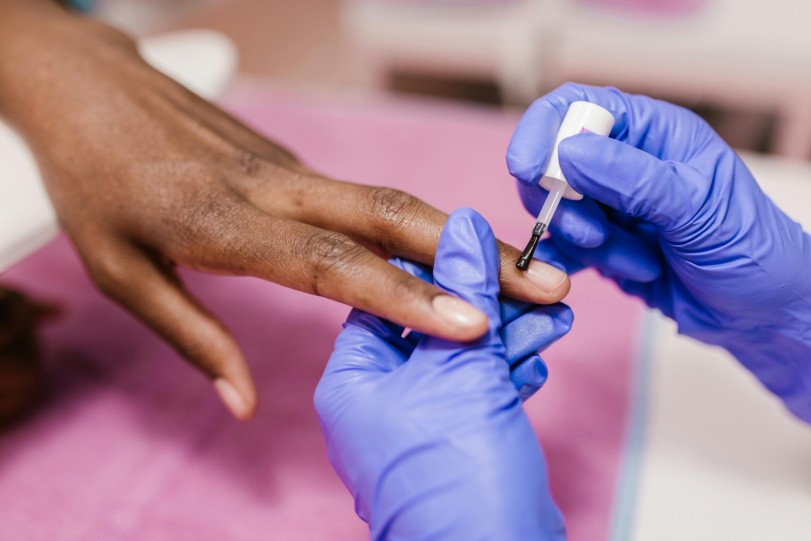
(Photo : Pexels/RDNE Stock Project)
Peeling nails can stem from various causes, ranging from nutritional deficiencies and frequent exposure to water to the use of harsh chemicals and underlying medical conditions such as anemia and thyroid disorders.
Addressing and preventing peeling nails involves a combination of proper nail care, dietary adjustments, and protective measures.
Here are effective strategies to tackle this common issue and promote healthier nails.
1. Hydrate and moisturize
Hydration is key to maintaining healthy and strong nails. As per Prevention, properly caring for and moisturizing your nails is the most effective way to prevent them from peeling.
Apply a nourishing hand and nail cream or a cuticle oil. Look for products that contain moisturizing ingredients such as shea butter, jojoba oil, and vitamin E. These ingredients help to keep the nails flexible and prevent them from becoming brittle and prone to peeling.
2. Use nail strengtheners
Nail strengtheners can provide an extra layer of protection for weak and peeling nails. These products often contain proteins and other strengthening ingredients that help reinforce the nail structure, according to Silhouette Spa & Laser.
Apply a nail strengthener as directed to promote stronger, more resilient nails.
3. Limit handwashing and exposure to harsh chemicals
Frequent exposure to water or handwashing, especially in hot water, can weaken the nails and cause them to peel, as Healthline noted.
To minimize this, wear gloves when doing household chores such as washing dishes or cleaning.
4. Adopt a nutrient-rich diet
A balanced diet rich in essential vitamins and minerals is crucial for nail health. Ensure you are getting adequate amounts of biotin, iron, vitamin E, and omega-3 fatty acids.
Foods such as eggs, nuts, seeds, leafy greens, and fish are excellent sources of these nutrients. If necessary, consider taking a multivitamin or specific supplements to address any deficiencies.
5. Avoid physical trauma to nails
Preventing physical trauma is essential for maintaining nail integrity. Avoid biting your nails or picking off your nail polish, as these habits can lead to peeling. Be mindful of how you use your nails, and try not to subject them to undue stress or pressure.
6. Avoid wearing acrylic or gel nails too often
Harsh chemicals in nail products like gel or acrylic nail adhesives, as well as in hand soaps, sanitizers, and laundry detergents, can lead to peeling nails.
If you enjoy using these products, try to limit their use and give your natural nails a break between applications to recover and strengthen.
7. Take supplements if necessary
If you suspect your diet may be lacking in certain nutrients, taking supplements can help support nail health. However, it is important to consult your doctor first.
Biotin supplements, in particular, are known to improve nail strength and reduce peeling. Consult with a healthcare provider before starting any new supplement regimen to ensure it is appropriate for your needs.
8. Consult a healthcare professional
If your peeling nails persist despite following these preventive measures, it may be indicative of an underlying health condition.
Conditions such as anemia, thyroid disorders, and fungal infections can contribute to peeling nails. In such cases, it is important to seek medical advice to receive a proper diagnosis and treatment plan.

